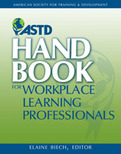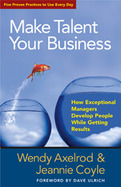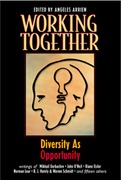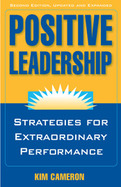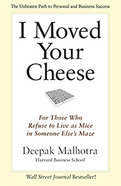ASTD Handbook for Workplace Learning Professionals is the definitive guide for learning professionals from the most trusted industry authority in the business. This 1000+ page case-bound book is a required desk reference for all learning professionals.
Packed full of key practices from adult learning theory, instructional design and delivery, measurement and evaluation, to human performance improvement and technology enabled learning. The Handbook brings together authors who represent the best practitioners in the field, authorities to present the most critical information to professionals like you. These luminaries of the workplace learning and performance (WLP) field include Bill Wiggenhorn, Geary Rummler, Robert Mager, Bill Byham, Elliot Masie, Donald Kirkpatrick, John Coné, Donnee Ramelli, and Tony Bingham. In addition, sidebars spread throughout the book introduce some of the most important contributors to the WLP field. Included in this volume is a complete glossary. Printed book includes a CD-ROM with supporting worksheets and tools.
ASTD Handbook may also be purchased by chapters from Fast Fundamentals: The BK Whitepaper Series.
Interested in licensing this title on your website? Contact [email protected]
today! Or visit ASTD’s Content Licensing Webpage
for more information.
Shows how managers can develop the talents of their employees naturally, efficiently and effectively.
Despite considerable investment in resources and tools, many companies struggle to meet the demand for the talent they require. Make Talent Your Business\u201d gets to the heart of the matter: Managers themselves are in the best position to help people learn from experience (the uncontested major source of development) and shows managers how to do it by using the five practices that work for managers who are exceptional at building talent. This set of practices goes well beyond the usual managerial coaching and performance management. It moves the focus from performance today to development of skills that truly "raise the game" of employees—skills such as in-the-moment judgment, customer relationship building and collaborative decision-making. Managers who grow talent enhance their own reputations and get better results, retain people, attract talent and make their organizations more agile and capable to deal with future challenges.
2001
A stellar list of contributors bring a variety of perspectives to establish one central theme: diversity is an advantage to be utilized, not a problem to be solved. Themselves representing a wide range of cultural, national, and vocational perspectives, the contributors examine how diversity creates new possibilities for working together in our projects, our organizations, and our lives. Working Together reveals diversity as a rich resource to meet the challenges of our changing times, an unparalleled opportunity to bring together a multiplicity of gifts for a common purpose.
- A stellar array of contributors includes such well known figures as Mikhail Gorbachev, Riane Eisler, and Norman Lear
- Helps individuals, communities, and organizations to recognize diversity as a rich resource as opposed to an obstacle to growth
2012
-
By the coauthor of Developing Management Skills (over 250,000 copies sold)
-
Draws on cutting-edge researchnot anecdotal personal storiesto show how to achieve success that far exceeds expectations
-
Updated throughout with new research findings and new ideas for implementing positive leadership
Leadership should be about much more than hitting targets and avoiding mistakes. Kim Cameron shows how to reach beyond ordinary success to achieve extraordinary effectiveness, spectacular results, and what he calls "positively deviant performance"performance far above the norm. Positive leadership enables thriving and flourishing rather than simply addressing obstacles and impediments. It helps bring out the best in human nature.
Cameron is one of the founders of the new field of Positive Organizational Scholarship, which studies unusually high-performing organizations. In Positive Leadership he draws on discoveries in this field and in the allied field of positive psychologywhich focuses on high-functioning individualsas well as positive organizational change methodologies. He identifies four interrelated
leadership strategies:
- Positive Climate: fostering emotions such as optimism, compassion, and gratitude
- Positive Relationships: building positive energy networks and developing strength-based activities
- Positive Communications: fostering best-self feedback and supportive communication patterns
- Positive Meaning: helping people find profound purpose and a sense of calling
Cameron cites the empirical research that these strategies are rooted in and that supports their bottom-line effectiveness, lays out a proven process for implementing them, and includes a self-assessment instrument and a guide to assist leaders in the implementation process. Positive Leadership is a concise, thoroughly researched, and practical guide that any leader can use to generate truly amazing results.
2011
I Moved Your Cheese reveals what is possible when we finally discard long-held and widely accepted assumptions about how we should live our lives. After all, achieving extraordinary success, personal or professional, has always depended on the ability to challenge assumptions, reshape the environment, and play by a different set of rules—our own. But rejecting deeply ingrained beliefs is not easy. As Zed explains, “You see, Max, the problem is not that the mouse is in the maze, but that the maze is in the mouse.”
- The first serious challenge to the iconic bestseller Who Moved My Cheese?
- A thoughtful critique written by a Harvard Business School professor and bestselling author
- Uses the same playful and highly accessible fable format to encourage readers to examine their deeply held assumptions and to take control of their own destinies
- Click here for Press Release
With more than twenty-five million copies in print, Who Moved My Cheese? has become a phenomenon. It does offer some reasonable advice about adapting to change. Its certainly true that some of the events shaping our lives are beyond our control, and instead of struggling against them we must adapt and move on. But for all its good intentions, it ultimately advises us to unquestioningly accept our circumstances without exploring any possible alternativeslike mice in a maze mindlessly chasing after cheese.
I Moved Your Cheese takes a different point of view and offers an alternative approach. Harvard Business School professor and bestselling author Deepak Malhotra tells an inspiring story about a new generation of mice who begin to challenge assumptions and ask important questions. Rather than just accepting their situation and dutifully chasing the cheese, Max, Zed, and Big begin looking deeper, examining and reassessing what theyve been told are their limitations, and set out to chart a new course.
Innovation, entrepreneurship, creativity, problem solving, and business growth as well as personal growth depend on the ability to challenge accepted notions, reshape the environment, and play by a different set of rules: our own. We are not powerless to change our circumstances. We can control our destiny. By ana- lyzing our assumptions about the limitations we seem to face, we can, like Max, Zed, and Big, discover how to overcome them. But first we need to understand the ways we unknowingly hold ourselves back. As Zed explains to Max, The problem is not that the mouse is in the maze but that the maze is in the mouse.


